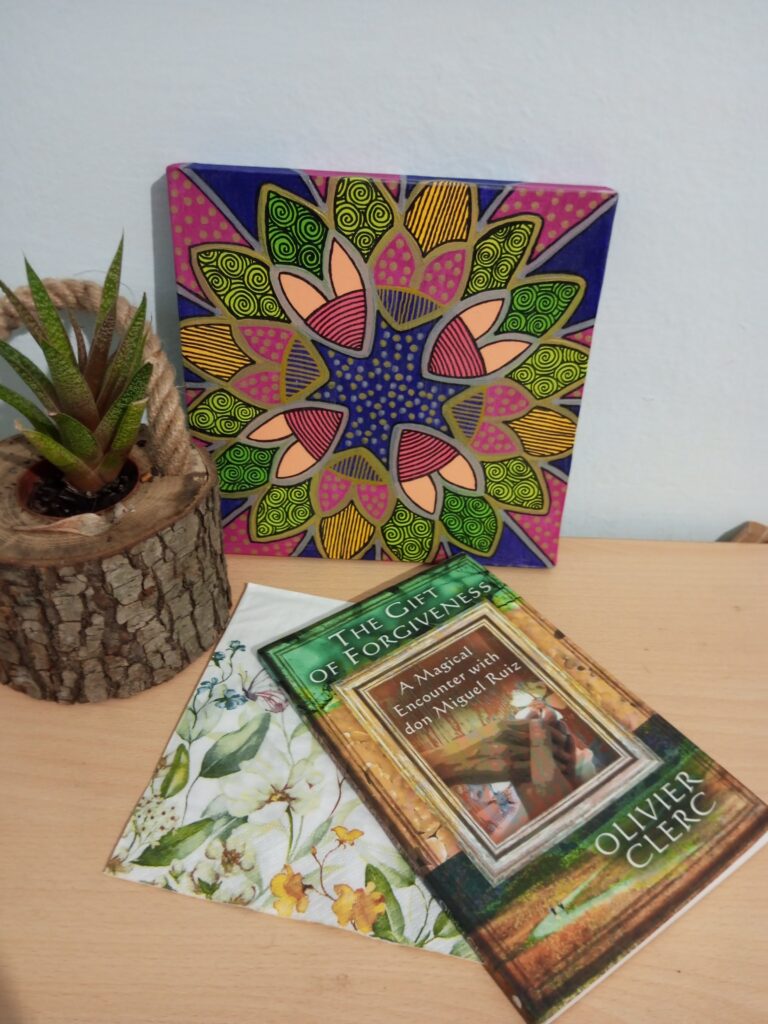Introduction
In our journey through life, the concept of forgiveness often emerges as both a challenge and a necessity. In The Gift of Forgiveness, Olivier Clerc presents a deeply introspective exploration of this powerful act, framing it as a tool for self-liberation and emotional healing. Although the book didn’t resonate with me as deeply as I’d hoped, it offered some notable insights worth reflecting on. In this article, I’ll share key lessons from the book and my personal reflections on its teachings.
1. Forgiveness and Responsibility
Clerc suggests that forgiveness is not about absolving someone else but about restoring ourselves to a state of full responsibility and personal empowerment. He writes: “Asking for forgiveness is an exit from the state of victimhood and a return to our true divine nature.” Forgiveness, in this context, opens the door to inclusion and non-rejection, allowing us to rebuild the flow of love in our lives. This perspective reframes forgiveness as a deeply personal and empowering act.
2. The Greatest Judge Is Within
One of the book’s profound points is that our greatest judge is not God, but the image of God we create in our minds. This idea challenges us to reflect on the stories we tell ourselves about morality, judgment, and forgiveness, emphasizing that our internalized beliefs often dictate our sense of guilt and self-worth.
3. The Purpose of Forgiveness
Clerc underscores that the main purpose of forgiveness is to restore love and reduce the mental barriers caused by judgment and hurt. By forgiving, we free ourselves from a judging mind, allowing discernment rather than condemnation to guide our thoughts and actions.
4. Feelings and Their Flow
A statement from Clerc that lingered with me is: “Feelings do not yield to our will; they have a life and flow of their own.” This concept is intriguing yet challenging to fully grasp. It suggests that emotions are autonomous, existing independently of our immediate control. While I’m still reflecting on this idea, it prompts a deeper understanding of how we process and manage emotions.
5. Barriers to Forgiveness
Clerc identifies superiority as a common obstacle to forgiveness: “We act as though we have the right to grant pardon to a condemned person.” This mindset creates a division, placing ourselves above others. Letting go of this superiority is crucial to cultivating genuine forgiveness.
6. How to Use the Gift of Forgiveness
Clerc provides a practical framework for practicing forgiveness:
1. Create space for introspection: Find a quiet place and adopt a relaxed posture.
2. Achieve inner stillness: Use meditation or mindfulness to calm your mind.
3. Ask for forgiveness: Visualize those you wish to forgive and release feelings of superiority or self-righteousness.
4. Forgive the extremes: Clerc provocatively suggests forgiving both God and the devil, emphasizing that this act frees us from the grip of negativity.
5. Forgive yourself: Self-love and acceptance are foundational. Clerc encourages us to laugh at our shortcomings and set a tone of self-compassion, as our inner beliefs influence how others treat us.
7. Gratitude as Humility
Expressing gratitude is a vital part of forgiveness. Clerc highlights that gratitude keeps us grounded, fostering humility and reinforcing positive connections with others.
8. Unconditional Love
The book concludes with a definition of unconditional love:
“Unconditional love is free of negative feelings and emotions. It allows us to see others as individuals with both light and darkness, rather than reducing them to their worst actions.” Clerc emphasizes that how we react to others’ actions often reveals where we still hold judgment against ourselves. Recognizing this connection can help us uncover the origins of our self-judgment and work towards healing.
Personal Reflection
While The Gift of Forgiveness offered valuable insights, I found myself grappling with some of its concepts, particularly the idea of forgiving extremes like God and the devil. This perspective challenged my understanding of forgiveness and its scope.
What I appreciated most was Clerc’s emphasis on self-forgiveness and the connection between our internal beliefs and external experiences. However, the book occasionally felt overly idealistic, making it difficult for me to fully resonate with its message.
Overall, this book reinforced the importance of forgiveness as a personal growth tool. Even though it wasn’t my favorite read, it served as a reminder to approach life with humility, gratitude, and a willingness to grow. Forgiveness is indeed a gift—one that frees not only the forgiven but also the forgiver.


Nice read! One thing I very much enjoyed about this review was the structure: I personally pick reading listed items like this over long unstructured texts every day of the week
About the book, what really astounded me -among other things- was this statement: “We act as though we have the right to grant pardon to a condemned person.” I believe we do have the right not to/to pardon someone who’s done us wrong; whose else that right could be given to?